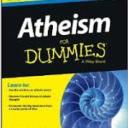Yahoo Answers is shutting down on May 4th, 2021 (Eastern Time) and beginning April 20th, 2021 (Eastern Time) the Yahoo Answers website will be in read-only mode. There will be no changes to other Yahoo properties or services, or your Yahoo account. You can find more information about the Yahoo Answers shutdown and how to download your data on this help page.
Trending News
Does anyone here have a good understanding of Matthew xxvi. 39?
The verse:
And being gone forward a little, he fell upon his face, praying, and saying, My Father, if it be possible, let this chalice pass from me. Nevertheless not as I will, but as thou. [Matth. xxvi. 39]
Many seem to misunderstand this verse thinking that Jesus here is showing a form of fear which is completely incorrect. I was wondering if anyone has a deep understanding of this verse.
@Jody., there is nothing wrong fear, the fact is, Christ here was not in any fear. When I was younger, I had thought it to be fear as well, though I recently came to fully understand the verse.
He presented the infidelity, ingratitude and contempt with which sinful man was to respond to his frightful Passion and Death; He presented also the loss which He was to sustain from those who would not profit by his clemency and condemn themselves to eternal woe. Though to die for his friends and for the predestined was pleasing to Him and longingly desired by our Savior; yet to die for the reprobate was indeed bitter and painful; for with regard to them the impelling motive for accepting the pains of death was wanting. This sorrow was what the Lord called a chalice, for the Hebrews were accustomed to use this word for signifying anything that implied great labor and pain. The Savior himself had already used this word on another occasion, when in speaking to the sons of Zebedee He asked them:
whether they could drink the chalice, which the Son of man was to drink (Matth 20, 22). This chalice then was so bitter for Christ our Lord, because He knew that his drinking it would not only be without fruit for the reprobate, but would be a scandal to them and redound to their greater chastisement and pain on account of their despising it (I Cor. 1, 23).
It seems that everyone here still missed the point.
In this prayer Christ besought His Father to let this chalice of dying for the reprobate pass from Him. Since now his Death was not to be evaded, He asked that none, if possible, should be lost; He pleaded, that as His Redemption would be superabundant for all, that therefore it should be applied to all in such a way as to make all, if possible, profit by it in an efficacious manner; and if this was not possible, He would resign Himself to the will of His eternal Father. Our Savior repeated this prayer three times at different intervals (Matth. xxvi, 44), pleading the longer in his agony in view of the importance and immensity of the object in question (Luke xxii, 43).
According to our way of understanding, there was a contention or altercation between the most sacred humanity and the Divinity of Christ. For this humanity, in its intense love for men who were of his own nature, desired that all should attain eternal salvation through his Passion; while his Divinity, in its secret and high judgments, had fixed the number of the predestined and in its divine equity could not concede its blessings to those who so much despised them, and who, of their own free will, made themselves unworthy of eternal life by repelling the kind intentions of Him who procured and offered it to them. From this conflict arose the agony of Christ, in which He prayed so long and in which He appealed so earnestly to the power and majesty of his omnipotent and eternal Father.
9 Answers
- lyn1136Lv 710 years agoFavorite Answer
There is no contention (altercation) in the understanding of SACRIFICE. Christ knew from eternity He was to became Man --to become the PERFECT Sacrifice, the one which would finally free Man from eternal death (loss of the Beatific Vision). God knew Man would Fall out of holiness.
Christ is LOGOS, or having TWO NATURES. He is not "sometimes a 'form" or sometimes "taking on the human nature." Since the Incarnation He is perpetually BOTH NATURES. Eternal God, & since Incarnation, eternal Man. He demonstrates for our sake that He IS GOD, & speaks as God, “Begone, Satan, for it is written thou shalt not tempt the Lord, thy God." Then the Devil knew He was the LOGOS, the Redeemer! Christ spoke in His human nature, "My God, my God, why hast Thou forsaken me?" He demonstrates our fear is His too, as Man. But at all times He is the LOGOS, God AND man, each nature independent of the other, not "combined as 'god-man," but as God Made Man." Not "wearing" a "cloak" of humanity, but REAL BODY AND BLOOD, AND DIVINE SPIRIT--both. The Mystery of Faith.
Christ, as God. knew of His Incarnation from all eternity, that He was to SACRIFICE an incarnated human nature in place of Man which could not offer a worthy SACRIFICE to the Father for ORIGINAL SIN. As Man, His human nature has the same fear and dread of death as Man.. This is the Mystery of Faith of the New and eternal Testament, the New Law, instituted for all Mankind past, present and future, that the institution of Sanctifying Grace in His Church would bring all to the Divine Beatific Vision--because not all could attend the Last Supper and the Crucifixion in person. He recreates for us His Sacrifice and transubstantiates Himself just the same as He did at the Last Supper.
This is the divine Mystery of the Mass, that Christ daily recreates His PERFECT SACRIFICE ON OUR ALTARS in His transubstantiated FORM. But the Novus Ordo abandoned Christ's transubstantiation & substitutes mankind's ungraced no-mass "assembly" instead.
Christ is now LOGOS, two natures, He is never “not God” never "not Man." Since the Incarnation Christ will also ALWAYS BE also Man. This astonishing miracle caused the Angels joy and fear at the Incarnation. They knew their Divine God became Man, and they knew WHY!
There is no contention about this in Catholic Doctrine. In scripture we see Christ speaking as God at times. He spoke as Redeemer when Satan was trying to discover if He was truly Redeemer. “Begone, Satan, for it is written thou shalt not tempt the Lord, thy God.” He speaks to His Father as Christ Incarnated (as Man), “My God, my God, why hast Thou forsaken me?” But He is always TWO NATURES.
Traditional Catholics of Trent at traditionalmass.org/
Work of Human Hands, a theological critique of the graceless empty Mass
- NDMALv 710 years ago
By taking on human form, the Christ also took on human weaknesses. If this were not so, then his whole purpose for coming to earth was a sham. Jesus was tempted just like any other person, and could have chosen to yield to that temptation but did not. Christ taught with words, but he also taught using object lessons and example. What human would not prefer to avoid what was coming - horrible torture both physical and emotional, horrible pain, all this being displayed before the public? But in the end, Christ chose obedience to the will of the father over his own will thereby making his sacrifice valid. One man's sin (Adam) brought death by sin into the world, one sinless man, paid the required penalty for sin thereby winning the victory over sin, and death. If that one sinless man were not subject to the same temptations all men face, and therefore incapable of sinning then the sacrifice would have been little more than a meaningless gesture.
- Servant ALv 610 years ago
Jody is absolutely correct The Christ as a Spirit, never felt pain, hunger, or fear, but putting on and be joined to a flesh body the Christ experienced every thing that humans experienced, but he already knew the type of death he would have to endure.
I know that I am not fearful of dying, but I am fearful of the pain associated with dying a natural death, the body of Jesus was to be tortured to death.
He prayed to his Father, to give him the STRENGTH to overcome the pain, but he had to endure the pain so that he (the Christ) would know what it truly means to be human
Jesus said,
And I say unto you my friends, Be not afraid of them that kill the body, and after that have no more that they can do. Luke 12:4 (KJV)
Because after they have killed the body, you are now "in the spirit" and they can do nothing more to you.
- Anonymous10 years ago
What's wrong with fear?
Jesus was created a man - to walk in man's shoes all the way.
God created man in his own image.
Jesus got angry - look at the market place episode.
Jesus wept - so he has emotions.
He was disappointed when his disciples couldn't stay awake long enough for him to go pray that evening.
The list goes on that he was a man with very normal emotions.
I mean what's wrong with fear over being crucified, desending to hell for three days, and then being lifted back to heaven?
Wouldn't you be?
Isn't a good lesson that he could feel the fear over what he was about to do - but he did it anyway?
Isn't that in itself a pretty deep lesson?
Isn't someone considered a sociopath or mentally ill somehow if they don't feel fear in a situation that calls for it - or fear at all for that matter?
I mean how messed up would he be if he felt no fear?
Some say he wouldn't feel fear because he was "holy". But they don't seem to understand not only that Jesus was in human form at the time - but also he was sent here to show humans how to live. Wouldn't showing us how to live with fear be a good lesson? Plus, if God wanted to show us how a "holy" person would feel fear - then why did he put Jesus here in human form in the first place?
This is like that how controversy of the movie The Last Temptation of Christ. It's called a temptation - because you can't tell me that in human form with human emotions and being here with one of his reasons being to show us how to live in human form that he wouldn't be tempted? Tempted to do a lot of things - including not taking the chalice that was before him in that verse.
- How do you think about the answers? You can sign in to vote the answer.
- Anonymous10 years ago
' My Father, if it be possible, let this chalice pass from me.'
as a human, Jesus approached God with human limitations.
He then gathered Himself immediately and submitted to the Will of God ... crucifixion.
i believe that Jesus is the Model for us to follow.
1. human weakness ... not to face the cross.
2. overcoming human weakness thru submission to God, hence be empowered in so doing ... at the cross, Christ has overcome death. Death is swallowed in victory ...
therefore, as a christian, our approach to God must not be from a human point but a higher point .. the christian point, the point of obedience .. a higher ground ... to attain a higher calling.
- РобертLv 710 years ago
.
Mat 26:39 And he went a little further, and fell on his face, and prayed, saying, O my Father, if it be possible, let this cup pass from me: nevertheless not as I will, but as thou wilt.
:39
Fell on his face - See the note on Luk_22:44. This was the ordinary posture of the supplicant when the favor was great which was asked, and deep humiliation required. The head was put between the knees, and the forehead brought to touch the earth - this was not only a humiliating, but a very painful posture also.
This cup - The word cup is frequently used in the Sacred Writings to point out sorrow, anguish, terror, death. It seems to be an allusion to a very ancient method of punishing criminals. A cup of poison was put into their hands, and they were obliged to drink it. Socrates was killed thus, being obliged by the magistrates of Athens to drink a cup of the juice of hemlock. To death, by the poisoned cup, there seems an allusion in Heb_2:9, Jesus Christ, by the grace of God, Tasted death for every man. The whole world are here represented as standing guilty and condemned before the tribunal of God; into every man’s hand the deadly cup is put, and he is required to drink off the poison - Jesus enters, takes every man’s cup out of his hand, and drinks off the poison, and thus tastes or suffers the death which every man otherwise must have undergone.
Pass from me - Perhaps there is an allusion here to several criminals standing in a row, who are all to drink of the same cup; but, the judge extending favor to a certain one, the cup passes by him to the next.
Instead of ÏÏοελθÏν μικÏον, going a little forward, many eminent MSS. have ÏÏοÏελθÏν, coming a little forward - but the variation is of little moment. At the close of this verse several MSS. add the clause in Luk_22:43, There appeared an angel, etc.
.
- jurgenLv 610 years ago
Of course,he was scared to death.Otherwise, he would not had sweated blood.
Jesus,who was a man, was praying to God to save his life. Like any other prophet, he is willing to die if he was destined to die that way(if that was God's will).
Fortunately, his prayer was answered. As it was written in the Scripture, God sent his angels to rescue him.
According to the Apocalype of Peter, both Peter and Jesus was watching them that caught the like of Jesus.Of course, he was laughing at their blindness.
- implumbusLv 610 years ago
Y'shua....the man.....yeah..He was human just like you....was faced with Crucifixion the very next day.....and yeah...there may have been fear.....He was human...and had emotions just like we do....and just like God does....but....look...in the face of fear....He still acknowledge the will of His Father and still surrendered to His will..not his own....the challenge for us...in the face of trials...or impending trials...will we have this attitude....yeah...cry out to God....be honest....reveal our fear....but still be willing to let His will be done instead of trying to fix it on our own.....not that we wait and dint do anything...but we seek Him and do what He wants.....
- anonLv 710 years ago
I don't have a deep understanding of it but it precludes any other religion because ''there was no other way'' as Jesus found out from the Father






